NEWS & INSIGHTS


State-Level Implications of the Federal BBA Partnership Audit
Introduction: The Expanding Reach of Partnership Audit Reform
The overhaul of federal partnership audit procedures under the Bipartisan Budget Act of 2015 (BBA) was transformative at the federal level, but its ripple effects at the state level are still being felt nearly a decade later. As more IRS audits of partnerships proceed under the new rules, states are increasingly grappling with how to align their tax systems to collect their share of adjustments and imputed underpayments. The federal framework, which shifts audit and payment responsibilities from individual partners to the partnership entity, offers efficiency gains for the IRS but creates layers of complexity for state tax compliance. In 2025, many state legislatures and revenue departments are still responding to the practical challenges of conforming to the BBA regime, particularly when partnerships operate across multiple jurisdictions or when IRS adjustments affect items not traditionally tied to income.
The BBA Framework: Options for Resolving IRS Adjustments
Under the BBA audit regime, the IRS conducts centralized audits of partnerships and adjusts the return on a line-by-line basis. These adjustments may involve income, deductions, credits, capital accounts, or even non-income items such as partner liabilities. Once the IRS finalizes an adjustment, the partnership has three main options for resolution: the default rule, the amended return modification, and the Section 6226 push-out election. Each method has distinct tax and reporting consequences, and each triggers different implications at the state level.
Under the default rule, the IRS assesses an “imputed underpayment” directly against the partnership, calculated at the highest applicable tax rate (currently 37%). This approach streamlines collection but may not reflect the actual tax liabilities of individual partners, especially in tiered or multistate structures. Importantly, under this method, individual partners do not amend their returns, nor do they report additional income or tax liability. While simple at the federal level, this raises complications for states that rely on partner-level taxation or require partner disclosures for audit conformity.
State-Level Complexity under the Default Rule
States vary widely in how they respond to federal partnership adjustments under the default rule. In states that have adopted the BBA regime, such as New York, California, and Arizona, the tax may be assessed at the partnership level. However, reporting requirements differ significantly. For example, California requires partnerships to notify the Franchise Tax Board within 180 days of receiving a federal final determination. New York has proposed similar notification requirements but has not yet finalized them. Some states, including those without a personal income tax, such as Texas, focus on how partnership-level changes affect franchise or gross receipts tax reporting. Other jurisdictions remain silent on how to handle federal adjustments under the BBA, leaving taxpayers uncertain about whether to amend state returns or wait for state guidance.
Amended Return Modification: A More Tailored Approach with More Burden
The amended return modification allows partners to pay their respective tax liabilities by amending their returns for the “reviewed year”—the tax year under audit. While this option more accurately matches tax payments with economic ownership and benefits, it imposes significant administrative burdens on both taxpayers and state agencies. Partners must not only file amended federal returns but also determine whether and how to file amended state returns.
States again differ in their approach. Some states require amended returns whenever a federal adjustment affects state tax liability. Others only require notification. A key issue is whether the state statutes of limitation remain open to assess additional tax when federal adjustments occur years after the original filing. In some jurisdictions, a federal adjustment automatically extends the state assessment period. In others, the taxpayer must notify the state to trigger an extension.
The Push-Out Election: A Hybrid Model with Unclear State Treatment
The push-out election under Section 6226 allows partnerships to shift liability to the reviewed-year partners, but the additional tax is treated as a current-year obligation, not as an amendment to prior-year returns. This avoids amended return filings, but complicates state compliance because states typically tax partners based on annual income reported on original or amended returns, not on deemed payments of past liabilities. Under this method, partner adjusted gross income is not changed for the reviewed year or the current year, yet a payment obligation arises.
Few states have explicitly addressed how to treat push-out elections. In states that require matching of federal and state income, the push-out structure may disrupt alignment. In multistate partnerships, some partners may be resident in states that accept push-out reporting, while others reside in states that require amended returns or entity-level reporting. The practical effect is a patchwork of rules that partnerships must navigate based on partner location and entity status.
State Compliance Challenges: Timing, Notification, and Reporting
One of the central challenges in the state implementation of the BBA audit regime is the issue of timing. Partnerships must determine when a federal change becomes final and whether that date starts the clock for notifying state agencies. California, for instance, sets a 180-day window for notification. States vary in whether notification is required, whether amended returns are required, or whether amended returns are optional. This divergence requires careful tracking and mapping of each state’s rules.
In some cases, IRS adjustments affect items not normally reflected on state tax returns, such as partner liabilities or balance sheet items. Determining whether these adjustments necessitate state-level changes is not always clear. Partnerships must also evaluate whether they need to file amended entity-level returns in states where the entity is subject to separate taxation.
When the State Comes First: State-Initiated Partnership Audits
Compounding the complexity is the increasing prevalence of state-initiated audits. While the federal BBA framework provides centralized review and resolution, states are not always willing to wait for IRS outcomes. In some cases, states may audit partnerships independently and issue assessments based on their own rules. States may not have access to IRS audit results unless information-sharing agreements are in place, and even then, transmission of audit findings may be delayed.
Where a state audit precedes a federal audit, taxpayers face questions about how adjustments will be reconciled and whether duplicated assessments can be avoided. Some states permit taxpayers to amend federal returns based on state audit findings, but others do not. As a result, the lack of uniformity between state and federal proceedings creates risk of misalignment and additional exposure.
Conclusion: Strategic Coordination Is Essential in the BBA Era
For multistate partnerships, the implementation of the BBA partnership audit regime has significantly increased the importance of state-level tax planning and compliance. With varying rules on notification, amended returns, push-out elections, and partner-level reporting, taxpayers must coordinate closely with advisers to develop audit response strategies that address not only federal tax but also the disparate obligations that arise across state lines. In 2025, successful navigation of the BBA landscape requires not only technical precision but also a deep understanding of the procedural nuances and statutory differences that shape state responses to federal partnership audits.
© 2025 Jeanette Moffa. All Rights Reserved.
Share
Additional Articles by the SALTy Orange at Moffa Tax Law:
Florida Bar Tax Section Annual Meeting Washington D.C.
NEWS & INSIGHTS Florida Bar Tax Section Annual Meeting 2025 Leadership, Legislation, and Luxury: Everything You Need to Know About…
When Is a State Income Tax Constitutional? Lessons from Underwood Typewriter Co. v. Chamberlain
NEWS & INSIGHTS When Is a State Income Tax Constitutional? Lessons from Underwood Typewriter Co. v. Chamberlain In the world…
Motor Vehicle Industry Sales Tax Issues
NEWS & INSIGHTS Inside a Florida Sales Tax Audit: Tricks and Techniques Used by the DOR to Catch Auto Dealers…

Jeanette Moffa, Esq.
(954) 800-4138
[email protected]
Jeanette Moffa is a Partner in the Fort Lauderdale office of Moffa, Sutton, & Donnini. She focuses her practice in Florida state and local tax. Jeanette provides SALT planning and consulting as part of her practice, addressing issues such as nexus and taxability, including exemptions, inclusions, and exclusions of transactions from the tax base. In addition, she handles tax controversy, working with state and local agencies in resolution of assessment and refund cases. She also litigates state and local tax and administrative law issues.


